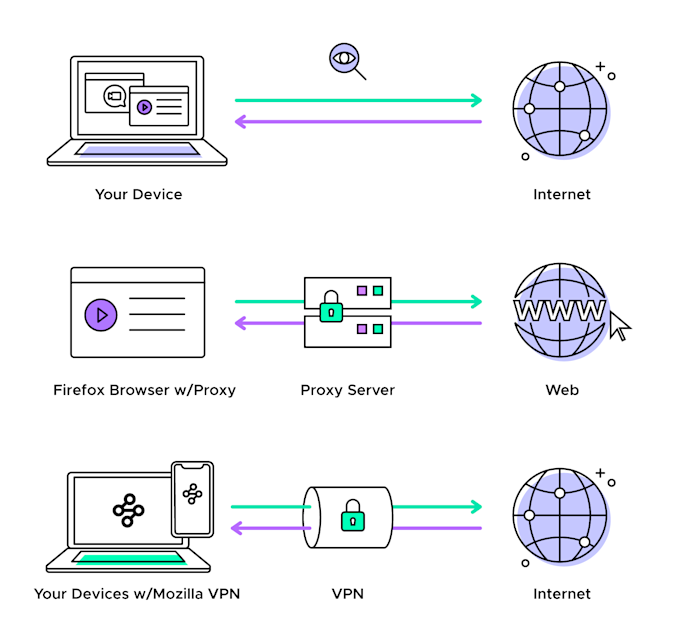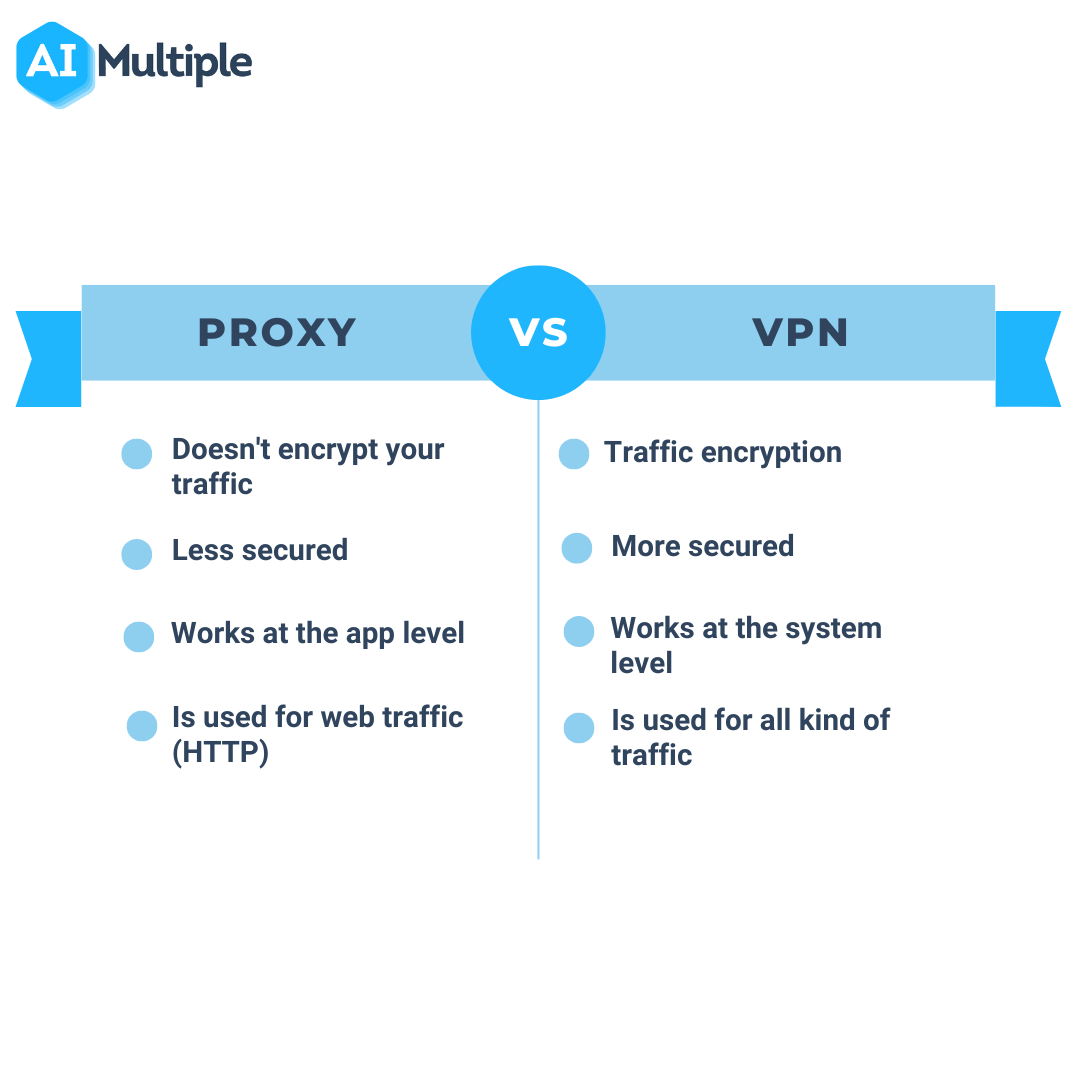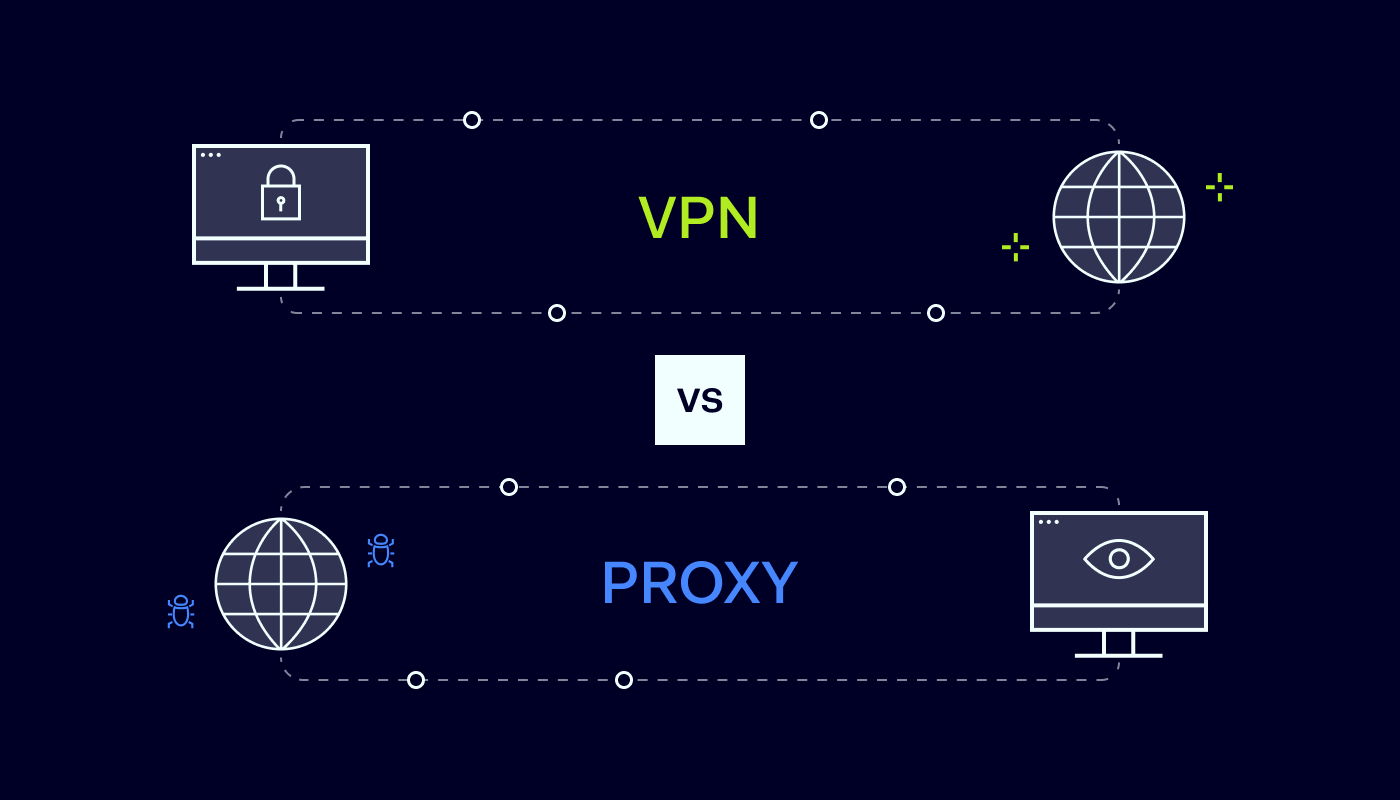Featured
Table of Contents
What Is The Difference Between A Proxy And Vpn Service?
In case if you are currently utilizing a VPN, then linking to a site or app utilizing a proxy server would be unnecessary. You can use a VPN and proxy together to include an extra layer of anonymity to your network connection. Nevertheless, you need to bear in mind that that you must have a steady Internet connection.


Here are the important choice requirements to choose a VPN: VPNs can be slow, and for that reason, it may be difficult to stream video online. You need to first experiment with the VPNs. If the server speed is good, then you can purchase it. It is good that you choose a VPN having more proxy servers at numerous locations.

All interaction online takes location by means of information packages. Applications and user gadgets exchange information in the kind of requests and actions. A client sends out a request to any application or web server by using the server's IP address, and the server sends back the response to the client's IP address.
Proxy Vs Vpn - Which One Is Better And Why?
The proxy server presents another layer between the client and the server. You can use a proxy server before the client (forward proxy) or your application server (reverse proxy). These approaches work as follows. Here's how clients and servers engage when you use a forward proxy server: When the customer sends out a web demand, it initially goes to the customer's proxy server The proxy server changes the client's IP address with its own IP address The proxy server forwards the web request to the application server The application server processes the request and sends out the action information back to the proxy server The proxy server forwards the reaction back to the client When you utilize a forward proxy server, the server is not familiar with the actual client and believes the proxy is the customer.

Something failed. Wait a moment and try again Attempt once again.
VPNs are very comparable. A VPN service works on the operating system level.
Ultimate Guide To Proxy Vs. Vpn In 2023: Which One Is ...
In this way, a VPN prevents your activity from being tracked by your ISP, federal government and any hackers trying to obstruct your device. The main distinction between them is that proxies will only reroute application traffic, while VPNs can do this for the entire operating system.
While file encryption is definitely a good thing, the time it takes to secure web traffic between your device and a remote server might result in a slower connection. The area of the VPN server can also hamper performance, however premium services tend to resolve these concerns and if it seems like an issue, we 'd recommend that you acquire the services of the fastest VPN you can.
Like VPNs, they'll require a long time to reroute your internet traffic. What's more, proxy services are often complimentary to download and will likely be inundated with traffic from others. Either way, if you select to go for a proxy or VPN, it's certainly worth considering premium, paid-for options as they're more effective and have more features - free VPNs serve a function but likewise have their downsides, such as limited information use and intrusive ads.
Vpn Vs Proxy: What's The Difference And Which Should You ...
Things like an incorporated kill switch, around the world servers, DNS leak defense and operating system-level security suggest they're more effective than proxies. If you simply want to hide your IP address for anonymous web browsing and bypassing geo-restrictions, proxies are fine.
Compare today's best general VPNs.
Nowadays, many web users compare a proxy vs VPN, wondering what they should use when browsing to protect themselves. In 2020, 84% of consumers stated they appreciated their personal privacy and information, and 80% wanted to act to secure it. Virtual Personal Networks (VPNs) and proxies are a possible service because they include an additional layer in between a web browser and any data tracking company or government.
Vpn Vs. Proxy: Key Differences
With simply the technical meanings, it can be challenging for a typical user to tell a VPN apart from a proxy. To assist you understand how a VPN is various from a proxy server, we've highlighted the significant distinctions comparing VPNs with proxies concerning security, personal privacy, cookies, expense, and speed.
Only after the data has been sent out through to the customer does it decrypt the information for other programs to utilize. So not only is your identity hidden from the website or service you check out, your ISP, or even the network doesn't know what information you're filling either. All they can see is that you're loading encrypted data from a VPN.
Even if you're on an open WIFI network, the file encryption secures your information from being obstructed by harmful hackers. And considering that the VPN uses end-to-end encryption, your ISP, router, company, or government can't access your data either. That's part of the reason that the Chinese government is attempting to limit the general public's access to VPNs.
What's The Difference Between A Proxy Vs. Vpn?
And with good factor. Due to the fact that of this brand-new law, essentially every website that tracks you with cookies has to ask for your approval.

Cookies will get downloaded to your computer through the proxy server or VPN. With a VPN, the cookie will mistake the VPN's IP address for your own, which will use some level of security versus fingerprinting and other digital tracking methods.
When you start utilizing a VPN or proxy server, you must clear all the cookies on your computer system. If not, existing cookies might interfere with the added layer of privacy. The website will link it with your initial area and IP address and use it to aid in your device's fingerprinting.
Latest Posts
The Best Mobile Vpns Of 2023
The Best Vpn Of 2023 - Cnn Underscored
The 5 Best Android Vpn Apps Reviewed (*Updated 2023)